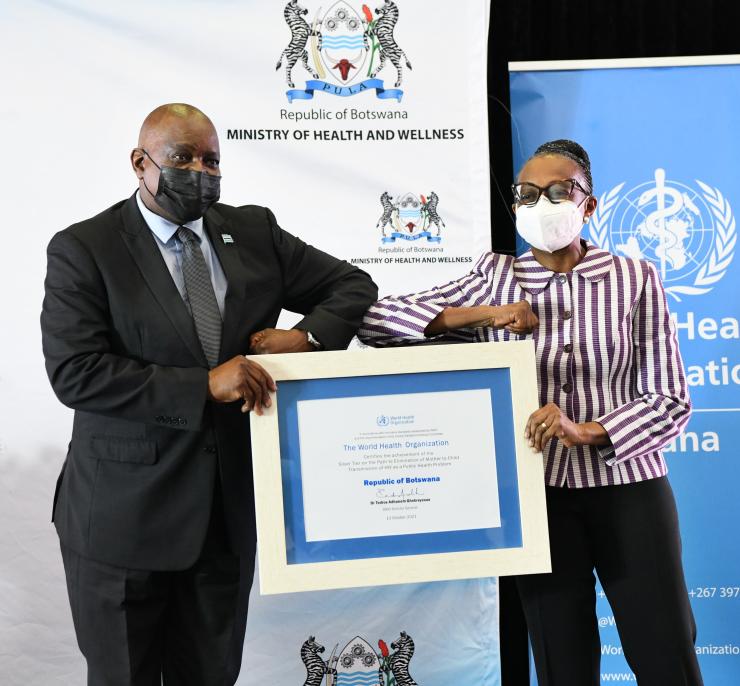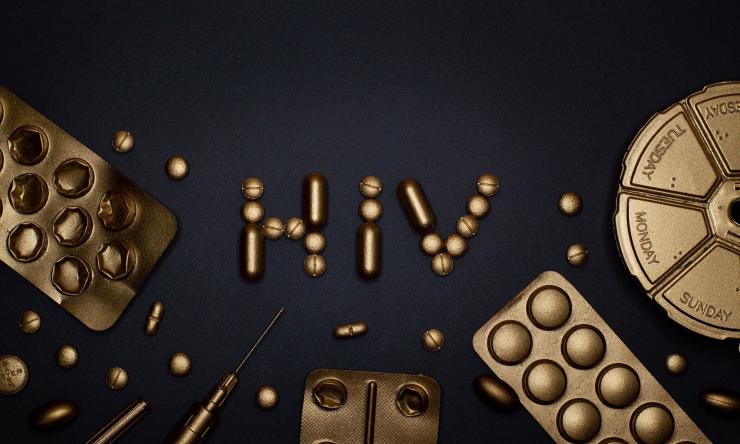BIPAI helps fuel Botswana being first high-burden country to achieve elimination of HIV mother-to-child transmission
On the heels of World AIDS Day, the World Health Organization (WHO) announced the Republic of Botswana as the first “high burden” country to be certified for achieving key milestones for the elimination of mother-to-child transmission of human immunodeficiency virus (HIV). High-burden countries are defined as those with more than 2% of pregnant women living with HIV.
The Baylor College of Medicine International Pediatric AIDS Initiative (BIPAI) at Texas Children’s Hospital has played a significant role in this achievement through the Botswana-Baylor Children’s Centre of Excellence. A partnership of BIPAI, Bristol Myers Squibb Foundation and the Government of Botswana, the center was the first on the African continent exclusively dedicated to free and accessible pediatric HIV/AIDS care and treatment.
“This is a huge accomplishment for a country that has one of the most severe HIV epidemics in the world. Botswana demonstrates that an AIDS-free generation is possible,” said Dr. Matshidiso Moeti, WHO regional director for Africa. “This groundbreaking milestone is a big step forward in ending AIDS on the continent and shows how visionary political leadership aligned with public health priorities can save lives. I look forward to other African countries also reaching this goal.”

A country must meet a set of targets and specific levels of service delivery to reach the WHO certification. Botswana received the “silver tier” certification, which WHO awards to countries that have achieved three objectives: mother-to-child HIV transmission rate below 5%; antenatal care and antiretroviral treatment to more than 90% of pregnant women; and an HIV case rate of fewer than 500 per 100,000 live births.
“Botswana’s pathfinding accomplishment demonstrates the remarkable progress that can be achieved when the needs of mothers living with HIV and their children are prioritized,” said Winnie Byanyima, UNAIDS executive director.
During the early years of the epidemic, Botswana was being devastated by HIV/AIDS, with over 30% prevalence among Batswana adults. In 2000, former President of Botswana Festus Mogae addressed the United States General Assembly where he stated, “We are threatened with extinction… it is a crisis of the first magnitude.”
In response to a global “call to action” to address pediatric HIV/AIDS treatment disparities, the Botswana-Baylor Children’s Clinical Centre of Excellence was built and dedicated in 2003. Botswana-Baylor Trust continues to be an integrated extension in the Botswana Ministry of Health and Wellness’ national efforts to achieve elimination of mother-to-child transmission and ultimately an HIV/AIDS-free generation in Botswana. To date, the Botswana-Baylor COE has enrolled 23,800 children and family members in HIV/AIDS care and treatment.
“This momentous achievement marks not the end but a giant step forward, ever inching closer to complete elimination of mother-to-child transmission of HIV, which has up to now seemed impossible for high-burden countries. We now know it is possible,” said Dr. Mogomotsi Matshaba, executive director of the Botswana-Baylor Trust, associate professor of pediatrics at Baylor College of Medicine and chair of the Botswana National Path to Elimination Validation Committee.
Eliminating mother-to-child transmission of HIV and syphilis continues globally to be a public health priority. To date, only a limited number of “low burden” countries have been able to achieve elimination validation by WHO: (2015) Cuba; (2016) Armenia (HIV only), Belarus, Moldova (syphilis only), Thailand; (2017) Anguilla, Antigua and Barbuda, Bermuda, Cayman Islands, Montserrat, St. Christopher and Nevis; (2018) Malaysia; and (2019) Maldives, Sri Lanka.
“This achievement epitomizes the return on our investments in public-private partnerships supporting health-sector systems strengthening and capacity enhancement initiatives,” said Michael Mizwa, BIPAI CEO and director of global health at Texas Children’s Hospital.
In a speech upon earning the WHO certification, Botswana President Mokgweetsi E.K. Masisi said, “I wish to thank everyone who has contributed to our success, starting with the individual, the family, the community, civil society organizations, the private sector and development partners. Together we will defeat the HIV pandemic and all other pandemics that will come our way. I therefore urge all of you to use the lessons learned in our fight against HIV/AIDS to defeat the ongoing COVID-19 pandemic. We need to remain resilient and unwavering in our adherence to COVID-19 health protocols.”
Botswana is now updating its guidance regarding syphilis and will expand its objectives regarding eliminating mother-to-child transmission moving forward in order to achieve complete elimination.











